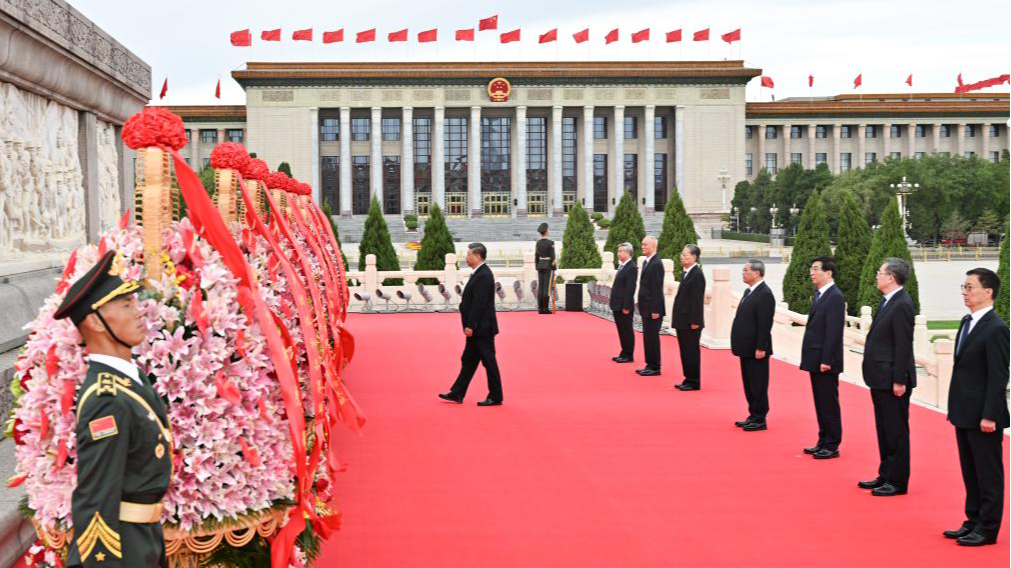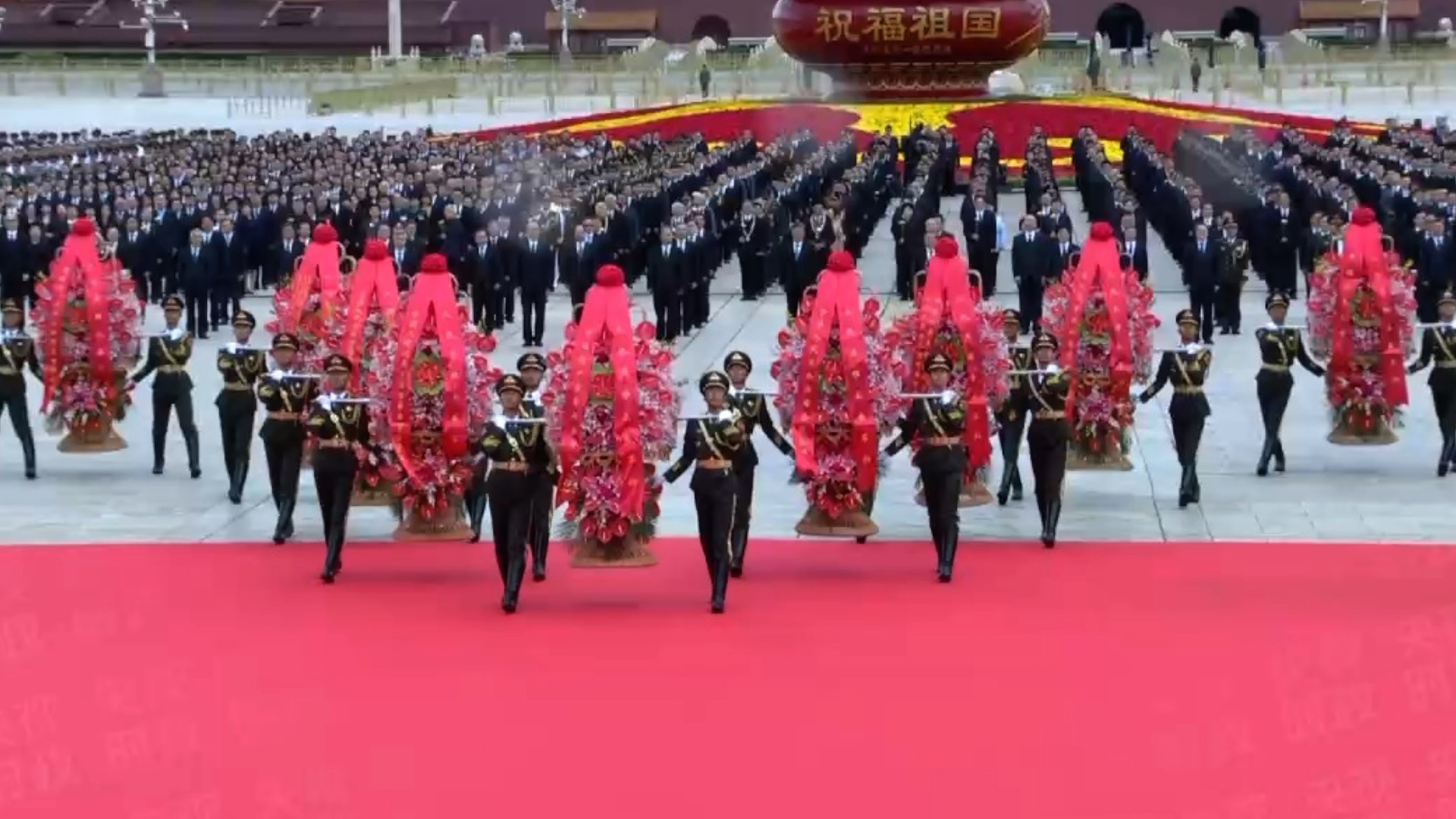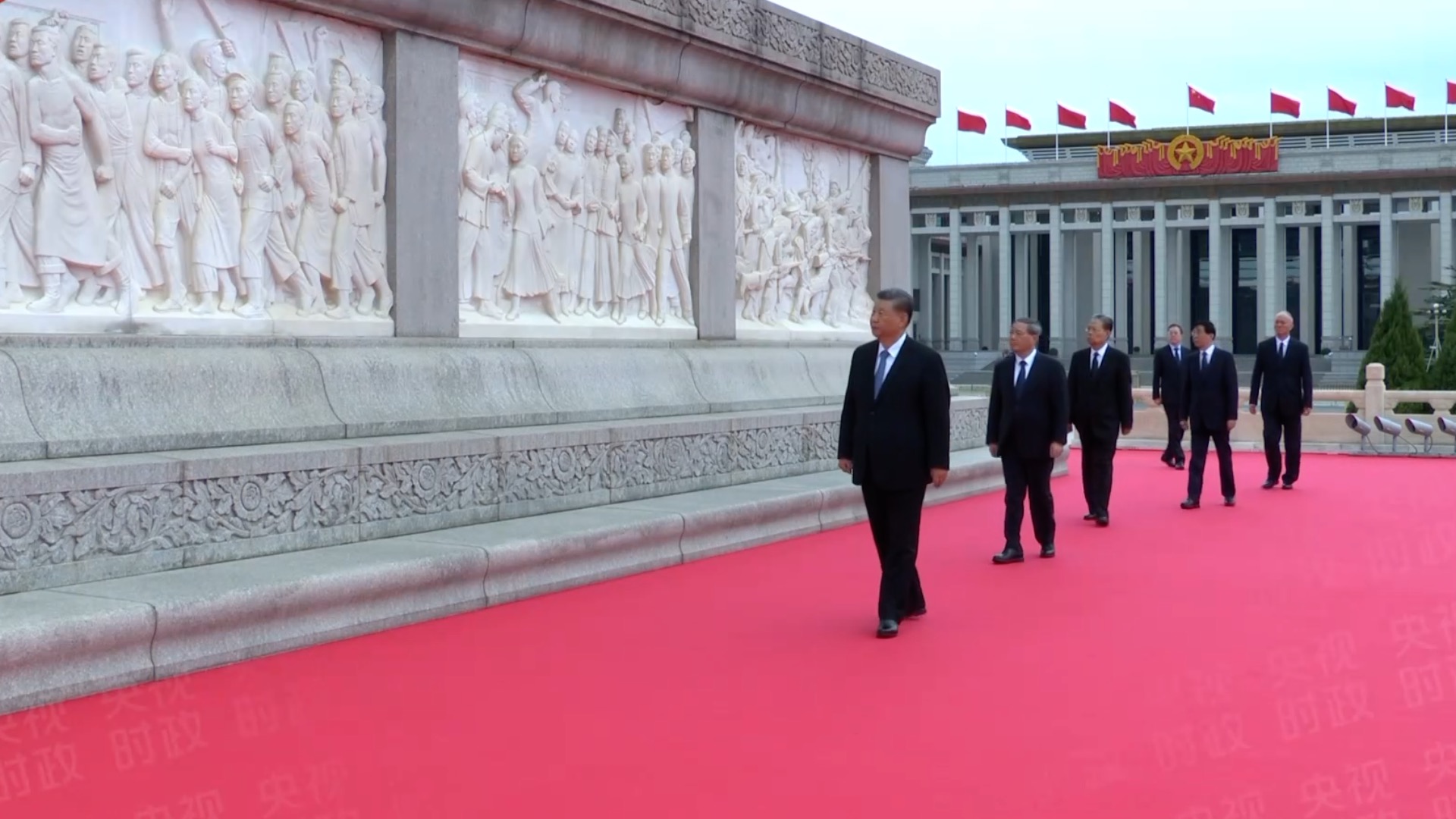
Chinese President Xi Jinping and other Party and state leaders including Li Qiang, Zhao Leji, Wang Huning, Cai Qi, Ding Xuexiang, Li Xi and Han Zheng attend a ceremony to present flower baskets to fallen heroes at Tiananmen Square in Beijing, China, September 30, 2024. /Xinhua
Chinese President Xi Jinping and other Party and state leaders including Li Qiang, Zhao Leji, Wang Huning, Cai Qi, Ding Xuexiang, Li Xi and Han Zheng attend a ceremony to present flower baskets to fallen heroes at Tiananmen Square in Beijing, China, September 30, 2024. /Xinhua
Chinese President Xi Jinping and other Party and state leaders attended a ceremony to present flower baskets to fallen heroes at Tiananmen Square in central Beijing on Monday. The event was held to mark the 11th Martyrs' Day of China, which falls on September 30, a day ahead of the country's National Day.
Over 2,400 veterans, family members of martyrs, and representatives from all sectors of life gathered at the Monument to the People's Heroes in Tiananmen Square to commemorate those who devoted their lives to the liberation of the Chinese people and the building of the People's Republic of China, which was founded on October 1, 1949.
The ceremony began with all participants singing the national anthem and paying a silent tribute. Schoolchildren in white shirts and red scarves then performed a chorus. Following that, nine baskets of flowers, with ribbons reading "Eternal Glory to the People's Heroes," were presented in front of the monument by honor guards.
05:33

Xi and other leaders walked up to the foot of the monument, where the Chinese president adjusted the red ribbons on the baskets before leading other senior officials in a tribute around the monument. Following them, schoolchildren and other attendees laid bouquets of chrysanthemums at its base.
Martyrs, as defined by the Chinese government, are "people who sacrificed their lives for national independence and prosperity, as well as the welfare of people in modern times, or after the First Opium War."
In 2014, the National People's Congress, China's top legislature, designated September 30 as Martyrs' Day to honor these individuals.
It was in the same year that the central government issued a notice requiring all regions across China to organize various memorial activities for Martyrs' Day, including holding public memorial ceremonies, mobilizing and organizing people to offer flowers at martyrs' graves, encouraging the public, especially young people, to commemorate martyrs online, learn about their heroic deeds, and visit the families of martyrs to offer condolences.
Martyrs' Day is one of China's three national memorial days, alongside Victory Day of the Chinese People's War of Resistance Against Japanese Aggression on September 3 and National Memorial Day for Nanjing Massacre Victims on December 13.
03:13

It's estimated that China has about 20 million martyrs. Among them, many were soldiers, revolutionaries and early communist leaders. But many ordinary Chinese people also sacrificed their lives for the common good.
According to the Ministry of Veterans Affairs, China has 160,000 facilities memorializing heroes and martyrs, with 1,600 institutions dedicated to their maintenance. There are also 300 national memorial facilities in 50 countries and regions, where 110,000 heroes and martyrs are interred.
In recent years, the government has strengthened legal protections for honoring heroes and martyrs.
The Law on the Protection of Heroes and Martyrs, effective since 2018, prohibits any organization or individual from insulting or defaming these figures. If there are no close relatives to file a lawsuit, prosecutorial authorities can initiate legal action. The law also grants benefits and preferential treatment to martyrs' families in education, employment, pensions, housing and healthcare.
Recently, revised regulations for honoring fallen heroes were issued, establishing improved criteria for identifying martyrs and enhancing financial support for their families. These regulations also aim to strengthen the management of memorial facilities and promote awareness of martyrs' deeds. The revised regulations will take effect on January 1, 2025.




